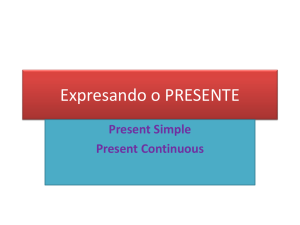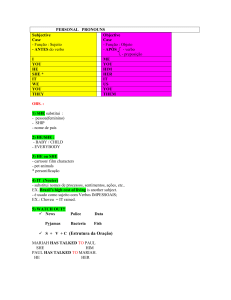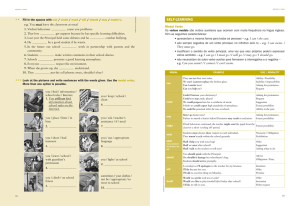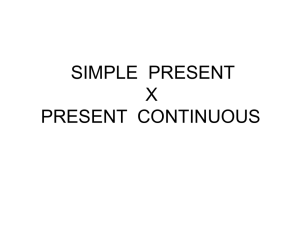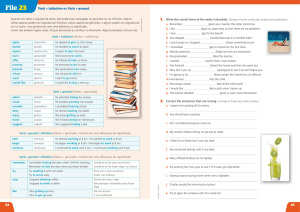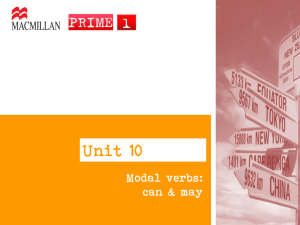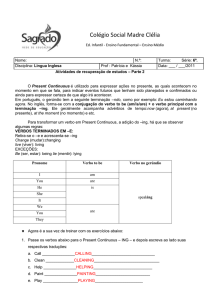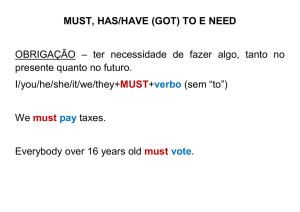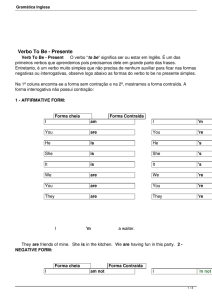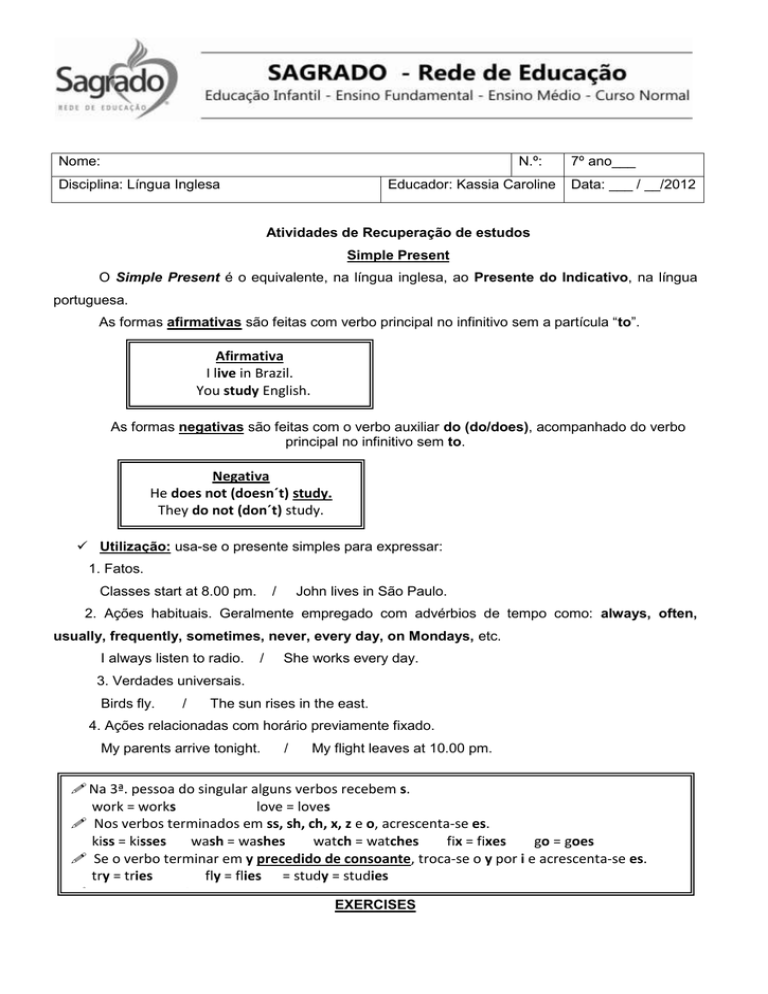
Nome:
N.º:
Disciplina: Língua Inglesa
Educador: Kassia Caroline
7º ano___
Data: ___ / __/2012
Atividades de Recuperação de estudos
Simple Present
O Simple Present é o equivalente, na língua inglesa, ao Presente do Indicativo, na língua
portuguesa.
As formas afirmativas são feitas com verbo principal no infinitivo sem a partícula “to”.
Afirmativa
I live in Brazil.
You study English.
As formas negativas são feitas com o verbo auxiliar do (do/does), acompanhado do verbo
principal no infinitivo sem to.
Negativa
He does not (doesn´t) study.
They do not (don´t) study.
Utilização: usa-se o presente simples para expressar:
1. Fatos.
Classes start at 8.00 pm.
/
John lives in São Paulo.
2. Ações habituais. Geralmente empregado com advérbios de tempo como: always, often,
usually, frequently, sometimes, never, every day, on Mondays, etc.
I always listen to radio.
/
She works every day.
3. Verdades universais.
Birds fly.
/
The sun rises in the east.
4. Ações relacionadas com horário previamente fixado.
My parents arrive tonight.
/
My flight leaves at 10.00 pm.
Na 3ª. pessoa do singular alguns verbos recebem s.
work = works
love = loves
Nos verbos terminados em ss, sh, ch, x, z e o, acrescenta-se es.
kiss = kisses
wash = washes
watch = watches
fix = fixes
go = goes
Se o verbo terminar em y precedido de consoante, troca-se o y por i e acrescenta-se es.
try = tries
fly = flies = study = studies
O verbo have é irregular, portanto fica has.
EXERCISES
I have...
She has...
1. Fill in the blanks with the correct form of one of the verbs below.
live
love
work
speak
play
a) My uncle ___________lives____________ in a big house in Portugal.
b) My aunt ____________works_____________ at my cousin´s school.
c) I ___________play__________________ soccer on my school team.
d) Many Canadians ___________speak____________ English and French.
e) We _____________love________________ cookies. They´re delicious!
2. Underline the correct alternatives. Then, rewrite the sentences using the negative:
a) My brother often (wait / waits) for me after school.
My brother often doesn´t waits for me after school.
b) You always (buy / buys) fruit at the street market.
You always don´t buy fruit at the street market.
c) The train (arrive / arrives) at 8.00 am.
The train doesn´t arrives at 8:00 am.
d) Carla (like / likes) hamburgers.
Carla doesn´t likes hamburguers.
e) We (have / has) a daughter.
We don´t have a daughter.
f) They (live/ lives) in a big city.
They don´t live in a big city.
g) I (speaks / speak) English.
I don´t speak English.
2. Look at the chart with Mandy´s routine. Fill in the blanks next to each line with always, never,
sometimes or usually.
Respostas:
2- always
3- usually
4- never
5- sometimes

